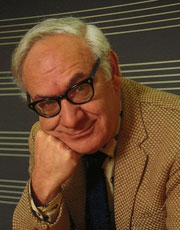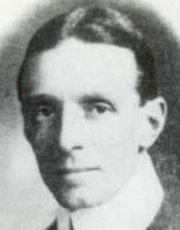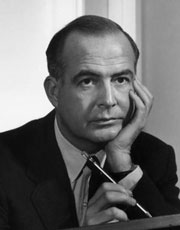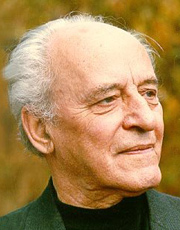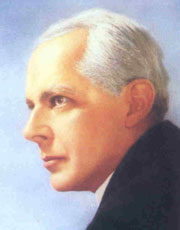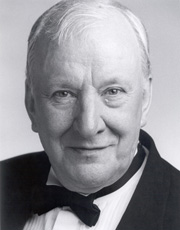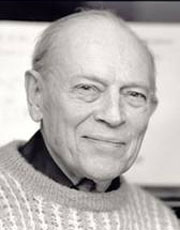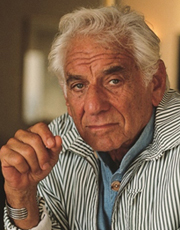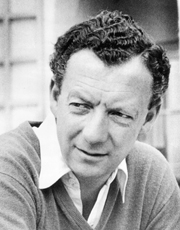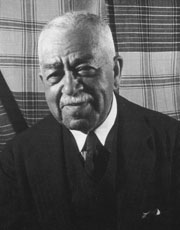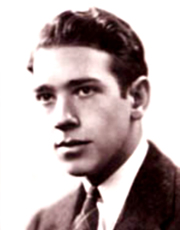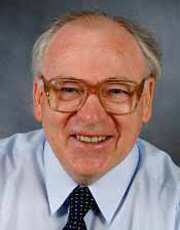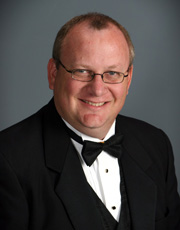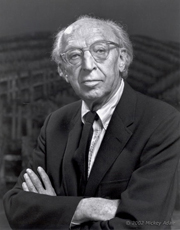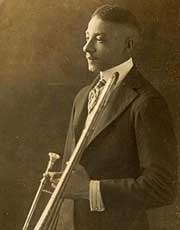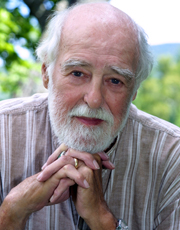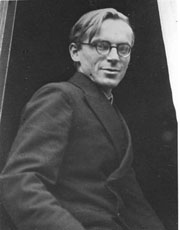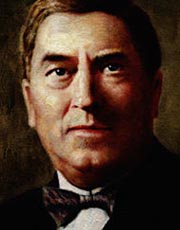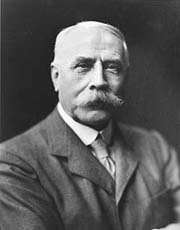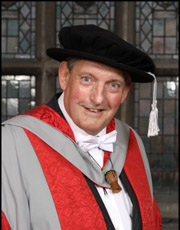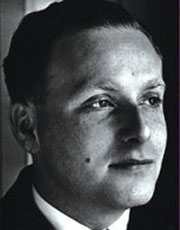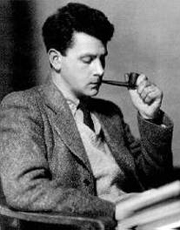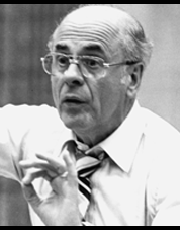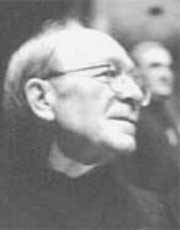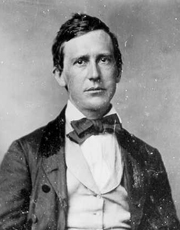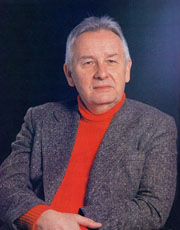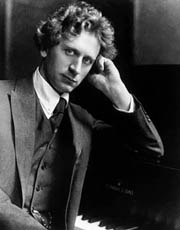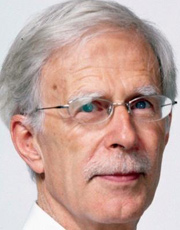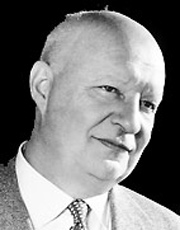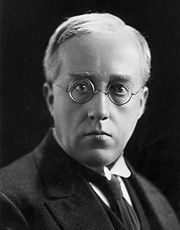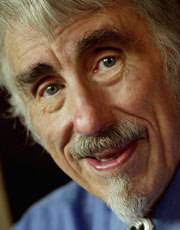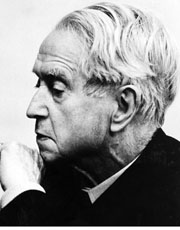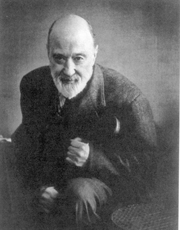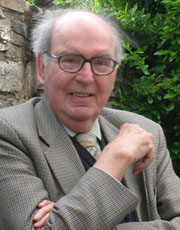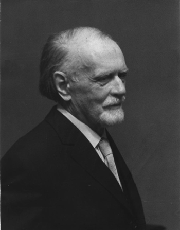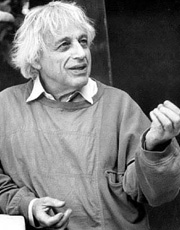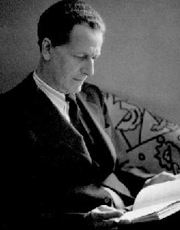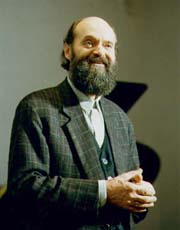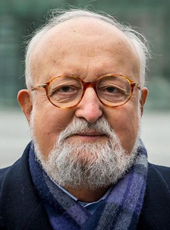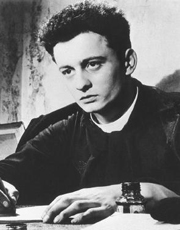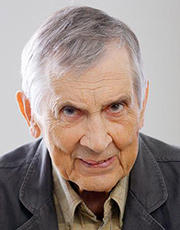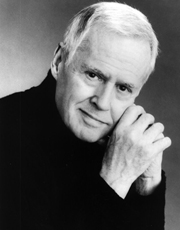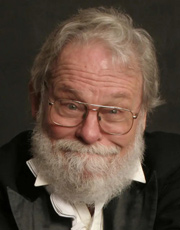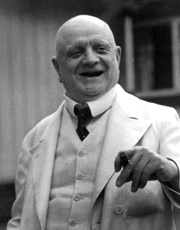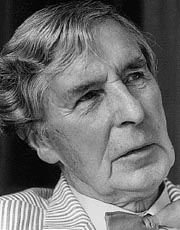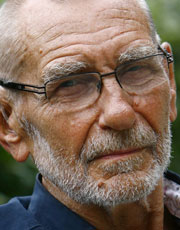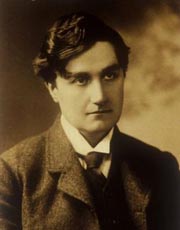In Celebration of the Human Voice - The Essential Musical Instrument
Home | Doo Wop | Barbershop | World | Contemporary | Christian | Vocal Jazz | Choral | Christmas | Instructional | Arrangements
Classical | Opera | Musicals | Personality | Young Singers | Disney | Videos | Songs | The Artists

20th Century Choral Composers
The 20th century was an interesting time for choral music as new composers created works unlike anything that had come before.
![]() Composers - Early Music | Classical | 20th Century | Modern
Composers - Early Music | Classical | 20th Century | Modern
Displaying 1 - 47 of 47 items.
Dominick Argento
Dominick Argento is considered to be America's preeminent composer of lyric opera. At the Peabody Conservatory, where he earned his Bachelor's and Master's degrees, his teachers included Nicholas Nabokov, Henry Cowell and Hugo Weisgall. Argento received his Ph.D. from the Eastman School of Music, where he studied with Alan Hovhaness and Howard Hanson. Fulbright and Guggenheim Fellowships allowed him to study in Italy with Luigi Dallapiccola and to complete his first opera, Colonel Jonathan the Saint. Following his Fulbright, Argento became music director of Hilltop Opera in Baltimore, and taught theory and composition at the Eastman School. In 1958, he joined the faculty of the Department of Music at the University of Minnesota, where he taught until 1997. He now holds the rank of Professor Emeritus.
Sir Edward Bairstow
Edward Bairstow was born in Huddersfield in 1874. After a period teaching at Windsor, in 1893 he became an apprentice to Frederick Bridge at Westminster Abbey, where he stayed for six years as pupil and assistant. He also held an appointment as Organist and Choirmaster at All Saints', Norfolk Square, London until 1899, when he went to Lancashire to take up the post of Organist at Wigan Parish Church. In 1906 he moved to Leeds Parish Church and was appointed Organist of York Minster in 1913, a post he held until his death in 1946.
In York he maintained the choral services at a high level and greatly widened the repertoire. He took the Doctorate of Music examinations at the University of Durham in 1902 and became Professor of Music there in 1929. This did not necessitate a move from York to Durham, for he was only required to give one lecture each year in order to fulfil his commitment. He was knighted in 1932, and received the Degree of Hon. D.Litt. from Leeds University in 1936./
Samuel Barber
Samuel Barber's music, masterfully crafted and built on romantic structures and sensibilities, is at once lyrical, rhythmically complex, and harmonically rich. Born 9 March 1910 in West Chester, Pennsylvania, Barber wrote his first piece at age 7 and attempted his first opera at age 10. At the age of 14 he entered the Curtis Institute, where he studied voice, piano, and composition. Later, he studied conducting with Fritz Reiner.
At Curtis, Barber met Gian Carlo Menotti with whom he would form a lifelong personal and professional relationship. Menotti supplied libretti for Barber's operas Vanessa (for which Barber won the Pulitzer) and A Hand of Bridge. Barber's music was championed by a remarkable range of renowned artists, musicians, and conductors including Vladimir Horowitz, John Browning, Martha Graham, Arturo Toscanini, Dmitri Mitropoulos, Jennie Tourel, and Eleanor Steber. His Antony and Cleopatra was commissioned to open the new Metropolitan Opera House at Lincoln Center in 1966.
Lajos Bardos
Lajos Bardos was a composer, conductor, and professor of music at the Franz Liszt Academy of Music. Together with Zoltan Kodaly, he laid the foundations of 20th-century Hungarian choral music. From 1928 to 1967 he was a professor at the Academy, where he reformed the syllabus, emphasizing the training of choral conductors, the teaching of church music history, and instruction in music theory and prosody. In 1931 he co-founded the publishing company Magyar Korus, and served as editor of the musical periodical of that name from then until 1950, when it was banned. From 1934 he organized the "singing youth" movement, encouraging young people across Hungary to join choral groups and learn the basics of music.
Through his work as a conductor Bardos raised the standards of Hungarian choral singing to an international level within decades. He directed several choirs and encouraged the development of choral activity in remote areas of the country. His repertory was pioneering: he included choral music from before Palestrina, especially those of Josquin, and promoted new music (he introduced, for example, Stravinsky's Symphony of Psalms into Hungary). His own compositions also draw on Renaissance polyphony and Hungarian folk music, following in the tradition of Bartok and Kodaly.
Bela Bartok
Bela Viktor Janos Bartok was a Hungarian composer, pianist and collector of Eastern European and Middle Eastern folk music. Bartok is considered one of the greatest composers of the 20th century. He was one of the founders of the field of ethnomusicology, the study and ethnography of folk music.
Bela Bartok began lessons with his mother, who brought up the family after his father's death in 1888. In 1894 they settled in Bratislava, where he attended the Gymnasium (Dohnanyi was an elder schoolfellow), studied the piano with Laszlo Erkel and Anton Hyrtl, and composed sonatas and quartets. In 1898 he was accepted by the Vienna Conservatory, but following Dohnanyi he went to the Budapest Academy (1899-1903), where he studied the piano with Franz Liszt's pupil Istvan Thoman and composition with Janos Koessler. There he deepened his acquaintance with Wagner, though it was the music of Strauss, which he met at the Budapest premiere of Also sprach Zarathustra in 1902, that had most influence. He wrote a symphonic poem, Kossuth (1903), using Strauss's methods with Hungarian elements in F. Liszt's manner.
Sir Richard Rodney Bennett
English composer and pianist. He studied at the RAM (1953-7) and with Boulez in Paris (1957-9), though his public career as a composer had begun before this. At 16 he was writing 12-note music, and the period with Boulez encouraged him towards Darmstadt techniques. But in the 1960s he recovered more conventional aspects to develop a style of Bergian expressionism (e.g. in his opera The Mines of Sulphur, 1965); his opera Victory was given at Covent Garden in 1970. His subsequent output is large, including many concertos, settings of English poetry, chamber music, and, notably, big Romantic film scores. A musician of great versatility, he has worked as a jazz pianist (several of his scores of the 1960s are in a sophisticated jazz style) and has played and arranged American popular music.
Erik Bergman
Erik (Valdemar) Bergman was an eminent Finnish composer, conductor, music critic, and pedagogue. At Helsinki University in 1931-1933, he studied musicology with the composer and ethnomusicologist Ilmari Krohn - the founder of the discipline in Finland - and literature with the critic and folklorist Yrjo Hirn; concurrently (1931-1938) he was a student at the Helsinki Conservatory - composition with the composer-pianist Erik Furuhjelm and with Bengt Carlson, who had studied under Vincent d'Indy in Paris, and piano with Ilmari Hannikainen, one of the major Finnish pianists. This was followed by further compostion studies with Heinz Tiessen at the Berlin Hochschule fur Musik (1937-1939), and the twelve-tone technique with Wladimir Vogel in Ascona, Switzerland (1942-1943).
Leonard Bernstein
The prodgiously gifted American conductor, composer, pianist, and teacher, Leonard (actually, Louis) Bernstein, took piano lessons as a boy and attended the Garrison and Boston Latin Schools. At Harvard University, he studied with Walter Piston, Edward Burlingame-Hill, and A. Tillman Merritt, among others. Before graduating in 1939, he made an unofficial conducting debut with his own incidental music to The Birds, and directed and performed in Marc Blitstein's The Cradle Will Rock. Then at the Curtis Institute of Music in Philadelphia, he studied piano with Isabella Vengerova, conducting with Fritz Reiner, and orchestration with Randall Thompson. In 1940, he studied at the Boston Symphony Orchestra's newly created summer institute, Tanglewood, with the orchestra's conductor, Serge Koussevitzky. Bernstein later became Serge Koussevitzky's conducting assistant.
Benjamin Britten
The renowned English composer, who was also a gifted conductor and pianist, Benjamin (Edward) Britten, studied with Frank Bridge as a boy and in 1930 entered the RCM. In 1934 he heard Wozzeck and planned to study with Alban Berg, but opposition at home stopped him. The next year he began working for the GPO Film Unit, where one of his collaborators was Auden: together they worked on concert works as well, Auden's social criticism being matched by a sharply satirical and virtuoso musical style (orchestral song cycle Our Hunting Fathers 1936). Igor Stravinsky and Gustav Mahler were important influences, but Britten's effortless technique gave his early music a high personal definition, notably shown in orchestral works (Bridge Variations for strings, 1937; Piano Concerto, 1938; Violin Concerto, 1939) and songs (Les illuminations, setting Rimbaud for high voice and strings, 1939).
Harry Burleigh
Henry Thacker ("Harry") Burleigh was an American classical composer, arranger, and professional singer known for his baritone voice. The first black composer who was instrumental in developing characteristically American music, Burleigh made black music available to classically trained artists both by introducing them to spirituals and by arranging spirituals in a more classical form. Burleigh also introduced Antonín Dvorak to Black American music, which influenced some of Dvorak's most famous compositions and led him to say that Black music would be the basis of an American classical music.
Alfred Burt
Alfred Burt (born April 22, 1920) was an American jazz musician who composed fifteen now famous Christmas carols between 1942 and 1954. Burt studied music at the University of Michigan in Ann Arbor, and served as an officer in the United States Army during World War II. After the war, he traveled to California, developing a career as trumpeter and arranger, and eventually joined the Alvino Rey Orchestra. His most famous carol, "Caroling Caroling", is often heard during the Christmas season, and many others have been recorded by dozens of artists. John Williams wrote two medleys of his works for the Boston Pops Orchestra. Burt wrote his carols for "publication" on the back of his Christmas cards each year. They are among the few modern carols to address serious spiritual themes. A heavy smoker, he died of lung cancer in 1954 at the age of 33. In 2003 Burt's niece, the composer Abbie Betinis, revived the traditional of sending Christmas cards with an original carol each holiday season.
Andrew Carter
Andrew Carter was born at Wigston Magna, Leicestershire, in 1939. He studied music at Leeds University before settling in York, where he joined the York Minster Choir as a bass. In 1965 he founded the Chapter House Choir at York Minster Cathedral, a mixed voice ensemble, which continued under his direction for seventeen years and achieved national renown. He wrote much of his early published arrangements for this choir.
Andrew was Director of Music at the Bar Convent Grammar School, where he achieved his first successes as a choir trainer. (The Bar Convent School closed in 1985 becoming All Saints Roman Catholic School, just down the road, but the original building is still in use as conference rooms etc.)
David Cherwien
David Cherwien, music director of the National Lutheran Choir, is a nationally known conductor, composer and organist. Recognized for his contributions to the field of church music and liturgy, he is in demand as a clinician and hymn festival leader across the country. David serves as editor of the National Lutheran Choir Series of choral music published by Morningstar Music Publishers. He is a founding member of the Association of Lutheran Church Musicians and has served in its leadership in a variety of capacities, including as National President from 1993 to 1997. He is a member of the American Choral Director's Association, American Guild of Organists, Chorus America and Choristers Guild.
Aaron Copland
Copland born in Brooklyn, New York. Of Russian Jewish descent, he spent his childhood living above his parents' Brooklyn shop. Although his parents never encouraged or directly exposed him to music, at age fifteen he had already taken an interest in the subject and aspired to be a composer. His music education included time with Leopold Wolfsohn and Rubin Goldmark, also one of George Gershwin's teachers, and with Nadia Boulanger in Paris from 1921.
Upon his return from his studies in Paris, he decided that he wanted to write works that were 'American in character' and thus he chose jazz as the American idiom. His first significant work was the necromantic ballet Grohg which contributed thematic material to his later Dance Symphony. Other major works of his first (austere) period include the Short Symphony (1933), Music for Theater (1925) and Piano Variations (1939). This jazz inspired period was brief, however as his style evolved toward the goal of writing more accessible works.
William Dawson
African American composer, performer, and music educator William Levi Dawson (1899-1990) used the rich vitality of his musical heritage as a basis for all types of music, including arrangements of folk songs and original compositions.
William Levi Dawson was born on September 26, 1899, in Anniston, Ala. At the age of 13 he entered Tuskegee Institute and graduated in 1921 with first honors. He received the bachelor of music degree from the Horner Institute of Fine Arts in Kansas City, Mo., in 1925. He studied composition under Felix Borowski at the Chicago Musical College and under Adolph Weidig at the American Conservatory of Music. In 1927 he received the master of music degree from the American Conservatory of Music in Chicago.
Robert DeCormier
Robert De Cormier was the acclaimed music director of the New York Choral Society for 17 years. Under his leadership the group became renowned for its high standard of excellence in choral singing and unique variety of programming.
As Music Director Emeritus, he guest conducted a performance of the Verdi Requiem in 1990, the Berlioz Requiem at St. Paul's Cathedral, New York City in 1992 and the premiere of a commissioned work, the Missa Iona in 1993 at St. Bartholomew's in New York City. During the 1995-96 season he conducted the operas, Brundibar and The Emperor of Atlantis in Vermont, New Hampshire, Massachusetts and at Merkin Concert Hall in New York.
He has conducted the Vermont Symphony Orchestra and Chorus in performances of the Mozart C Minor Mass, the Verdi Requiem, Vaughan Williams's Dona Nobis Pacem, Haydn's Creation, Beethoven's Missa Solemnis, Carl Orff's Carmina Burana and the Brahms Requiem.
Hugo Distler
Born in Nuremberg, Hugo Distler is known mostly for his sacred choral music. He attended Leipzig Conservatory first as a conducting student with piano as his secondary subject, but changing later, on the advice of his teacher, to composition and organ. He became organist at St. Jacobi in Lubeck in 1931. In 1933 he married Waltraut Thienhaus. That same year he joined the NSDAP: reluctantly, but his continued employment depended on his doing so. Distler also taught at the School for Church Music in Spandau, and became a professor of church music in Berlin in 1940.
Becoming increasingly depressed from the death of friends, aerial attacks, job pressures, and the constant threat of conscription into the German army, he committed suicide in Berlin at the age of 34. He chose to end his life by his own hand (with fumes from his own gas oven) rather than be conscripted into the Wehrmacht.
His work is polyphonic and frequently melismatic, often based on the pentatonic scale. Because of these characteristics, his work was stigmatized by some Nazis as "degenerate art." Distler enjoyed his first success in 1935 at the official Kassel Music Days (Kasseler Musiktage).
Maurice Durufle
The French composer, organist, and pedagogue, Maurice Durufle, became in 1912 chorister at the Rouen Cathedral Choir School, where he studied piano and organ with Jules Haelling. At age 17, upon moving to Paris, he took private organ lessons with Charles Tournemire (whom he assisted at Ste-Clotilde until 1927), Guilmant and Vierne. In 1920 Durufle entered the Conservatoire de Paris, where he took courses in organ with Gigout (Premier Prix, 1922), harmony with Jean Gallon (Premier Prix, 1924), fugue with Caussade (Premier Prix, 1924), and composition with Ducas (Premier Prix, 1928). He graduatied with first prize also in piano accompaniment.
Sir Edward Elgar
Surrounded by sheet music and instruments in his father's shop in Worcester's High Street, the young Elgar became self-taught in music. On warm summers' days, he would take manuscripts into the countryside to study them. Thus there began for him a strong association between music and nature. As he was later to say, 'There is music in the air, music all around us, the world is full of it and you simply take as much as you require.'
Having left school at the age of 15, he began work for a local solicitor, but after a year embarked on a musical career, conducting piano and violin lessons. At 22 he took up the post of bandmaster at the Worcester and County Lunatic Asylum, a couple of miles to the southwest of Worcester. In many ways, his years as a young Worcestershire violinist were his happiest. He played in the first violins at the Worcester and Birmingham Festivals, and one great experience was to play Antonin Dvorak's Sixth Symphony and 'Stabat Mater' under the composer's baton. Elgar was thrilled by Dvorak's orchestration and this remained an influence on his own style for more than a decade.
David Fanshawe
David Fanshawe, a Churchill Fellow and the recipient of many international awards, was an internationally distinguished composer, ethno-musicologist, sound recordist, archivist, performer, dynamic and entertaining lecturer, record producer, photographer and author. Also widely known for his lead roles in documentaries; a TV, radio and public personality extraordinaire, he is acclaimed as "one of the world's most original composers."
David Fanshawe was born in 1942 in Devon, England and was educated at St George's Choir School and Stowe. In 1959 he joined the Film Producers Guild in London gaining valuable experience as a documentary film editor and recordist. In 1965, he won a Foundation Scholarship to the Royal College of Music, studying composition with John Lambert. He gained national recognition in 1970, as cantor soloist and composer, at the Queen Elizabeth Hall, with Salaams, a work based on the rhythms of the Bahrain pearl divers. His ambition to record indigenous folk music began in the Middle East, in and was intensified on subsequent journeys through North and East Africa (1969-75) resulting in his unique and highly original blend of Music and Travel.
Irving Fine
Irving Fine's music, wrote Aaron Copland, "wins us over through its keenly conceived sonorities and its fully realized expressive content"; Copland also singled out its "elegance, style, finish and a convincing continuity", its overarching lyricism summed up in Virgil Thomson's description of its "unusual melodic grace".
Irving Fine was born in Boston, Mass., on 3 December 1914 and first studied piano; he was an admired pianist throughout his career, and was particularly esteemed by colleagues for his sight-reading ability. Fine went to Harvard University, attending the composition and theory classes of Edward Burlingame Hill and Walter Piston; he received his BA in 1937 and his MA a year later; at Harvard he also studied choral conducting with Archibald T. Davidson and, at Tanglewood, orchestral conducting with Serge Koussevitzy. In 1938-39 he attended Nadia Boulanger's composition classes at Fontainebleau, outside Paris, and at Radcliffe College, Cambridge (Mass.).
Gerald Finzi
Gerald Raphael Finzi was born into a fairly prosperous family on 14th July 1901. His father was a successful London shipbroker. There were four other brothers and sisters. He was descended from Italian Jewish ancestry and his parents were, at that time practising Orthodox Jews. The composer never really acknowledged this religious heritage. In fact he wrote a number of distinctively Christian works including fine setting of the Magnificat.
Finzi was educated privately. However during the First World War his mother moved the family to Yorkshire. There Finzi studied with the young composer Ernest Farrar. After Farrar had received his call up papers, Finzi completed the first part of his musical education with the great organist at York Minster-Edward Bairstow.
It was during his early life that Finzi first became aware of the transience of life- one of the major themes of his music. In the space of a few years his father and three brothers died. Ernest Farrar was killed on the Western Front. This sudden realisation of the harshness of the world recommended the poetry of Thomas Traherne - the great Platonist poet who dwelt on the innocence of the soul of a child and of course William Wordsworth's Intimations of Immortality.
Edwin Fissinger
Dr. Edwin R. Fissinger, a charter member of the American Choral Director's Association, had an active career as a conductor and composer for forty-five years. In addition to orchestral, piano, and vocal compositions, he wrote 183 choral works, a substantial contribution of quality literature to this medium. His music has attracted the attention of serious choral musicians and has received performances by numerous All-State Choirs and at regional and national ACDA conventions.
The choral music of Edwin Fissinger exhibits individuality, a signature that is readily recognizable by those who are familiar with his works. One only need reflect upon the individual qualities of the music to understand his important contribution to the enhancement of the choral art.
Larry L. Fleming
Dr. Larry L. Fleming, founder and long-time music director of the National Lutheran Choir, was a noted conductor and composer of both choral and instrumental music.
Fleming, Founder A native of Cut Bank, Montana, Fleming attended Concordia College in Moorhead, Minnesota on a $50 music scholarship. After his graduation in 1960 he became the first full-time director of music at University Lutheran Church of Hope in Minneapolis, where he conducted a 65-voice choir for six years. During the same period, he taught music and liturgy at Luther Seminary in St. Paul, and served as an editorial consultant and clinician for Augsburg Publishing House.
In 1966, Fleming accepted the position of Director of Choral Activities and Director of Chapel Music at Valparaiso University in Valparaiso, Indiana, where he taught until 1974. He left there to study in Europe and pursue a number of composition commissions and appointments as guest conductor. In 1976, he returned to teaching, at Concordia College for three years, and then in 1979 at Augsburg College in Minneapolis.
Stephen Foster
Stephen Collins Foster known as the "father of American music", was the pre-eminent songwriter in the United States of the 19th century. His songs such as "Oh! Susanna", "Camptown Races", "Old Folks at Home" ("Swanee River"), "Hard Times Come Again No More", "My Old Kentucky Home", "Old Black Joe", "Jeanie with the Light Brown Hair", and "Beautiful Dreamer" remain popular over 150 years after their composition.
Henryk Gorecki
After musical studies in Rybnik and Katowice, HM Gorecki's compositions first made their mark in the mid-1950s when he found himself at the forefront of the Polish avant-garde at the time of the post-Stalin cultural thaw. His early works show a clear development from the folk-influenced worlds of Szymanowski and Bartok in the Four Preludes for piano and Songs of Joy and Rhythm (1956) to the modernist techniques of Webern and Boulez in Epitafium (1958) and Symphony No.1 (1959), both premiered at the Warsaw Autumn Festival. During the 1960s Gorecki continued in a radical direction in the Genesis and Muzyczka cycles of works, whilst paring down his compositional material and exploring the folk music traditions of his beloved Tatra region in such works as Three Pieces in Old Style (1963) and Muzyka staropolska (Old Polish Music).
Percy Grainger
The Australian-born American pianist and composer, Percy Aldridge Grainger, was born to a father who was an architect who emigrated from London, England, and and to a mother, Rose, who was the daughter of hoteliers from Adelaide, South Australia, also of English immigrant stock. His father was an alcoholic. When Grainger was age 11, his parents separated after his mother contracted syphilis from his father, who then returned to London. Grainger's mother was domineering and possessive, although cultured; she recognised his musical abilities, and took him to Europe in 1895 to study at Dr. Hoch's conservatory in Frankfurt. There he displayed his talents as a musical experimenter, using irregular and unusual meters.
Jonathan Harvey
Born in Warwickshire in 1939, Jonathan Harvey was a chorister at St Michael's College, Tenbury and later a major music scholar at St John's College, Cambridge. He gained doctorates from the universities of Glasgow and Cambridge and (on the advice of Benjamin Britten) also studied privately with Erwin Stein and Hans Keller. He has written many widely-performed unaccompanied works for choir - as well as the large-scale cantata for the BBC Proms Millennium, Mothers shall not Cry (2000). His church opera Passion and Resurrection (l981) was the subject of a BBC television film, and has received seventeen subsequent performances. His opera Inquest of Love, commissioned by ENO, was premiered under the baton of Mark Elder in 1993 and repeated at Theatre de la Monnaie, Brussels in 1994.
Harvey is now in constant demand from a host of international organisations, attracting commissions far into the future, and his music is extensively played and toured by the major ensembles of our time (Musikfabrik, Ensemble Modern, Ensemble Intercontemporain, London Sinfonietta, ASKO, Nieuw Ensemble of Amsterdam and Ictus Ensemble, to name but a few).
Paul Hindemith
Paul Hindemith was a German composer, violist, violinist, teacher, music theorist and conductor. Born in Hanau, near Frankfurt, Hindemith was taught the violin as a child. He entered Frankfurt's Hoch'sche Konservatorium, where he studied violin with Adolf Rebner, as well as conducting and composition with Arnold Mendelssohn and Bernhard Sekles.
Hindemith is among the most significant German composers of his time. His early works are in a late romantic idiom, and he later produced expressionist works, rather in the style of early Arnold Schoenberg, before developing a leaner, contrapuntally complex style in the 1920s. This style has been described as neoclassical,(citation needed) but is very different from the works by Igor Stravinsky labeled with that term, owing more to the contrapuntal language of Bach than the Classical clarity of Mozart.
Gustav Holst
Gustavus Theodore von Holst was an English composer with Latvian (and some Spanish) roots.
Born in Cheltenham, where he was educated at Pate's Grammar School, he went on to study at the Royal College of Music in London. His best-known work is probably his orchestral suite The Planets, completed in 1916, although the composer himself did not count it as one of his best creations and later often complained that other works were completely eclipsed by it. The Planets (1914-1916) was partly inspired by meditations on his own horoscope/natal chart and dealt with the 'seven influences of destiny and constituents of our spirit.' Holst was especially influenced by a 19th-century astrologer called Raphael, whose book concerning the planets' role in world affairs led Holst to develop the grand vision of the planets that made The Planets such an enduring success.
Egil Hovland
Egil Hovland was a composer born in Rade, Norway. He studied at the Oslo Conservatory with Arlid Sandvold and Bjarne Brustad, in Copenhagen with Vagn Holmboe, at Tanglewood with Aaron Copland, and in Florence with Luigi Dallapiccola. He was the organist and choir leader in Fredrikstad from 1949 until his death. His many works include two symphonies, a concerto for trumpet and strings, Music for Ten Instruments, a set of variations for two pianos, and a lament for orchestra. His sacred works include a Norwegian Te Deum, a Gloria, a Magnificat, and numerous works for organ. He was one of the most noted church composers in Norway.
He wrote in diverse styles, including Norwegian-Romantic, Gregorian, neo-classical, twelve-tone, aleatoric, and serial. In 1983, in honor of his work as a composer and organist, he was knighted into the Royal Norwegian Order of St. Olav. In 1992, he received the Fritt Ord Honorary Award. He was one of the most prolific contemporary Norwegian composers of his time.
Herbert Howells
Herbert Norman Howells CH was an English composer, organist, and teacher. He was the youngest of six children born to Oliver and Elizabeth Howells. His father was an amateur organist, and Herbert himself showed early musical promise. He studied first with Herbert Brewer at Gloucester Cathedral, as an articled pupil alongside Ivor Novello and Ivor Gurney, the celebrated English song-writer and poet, with whom he became great friends. Later he studied at the Royal College of Music under C.V. Stanford, Hubert Parry and Charles Wood.
In 1915 Herbert Howells was diagnosed with Graves' disease and given six months to live. Since doctors believed that it was worth taking a chance on a previously untested treatment, he became the first person in the country to receive radium treatment. He was briefly assistant organist at Salisbury Cathedral in 1917, though his severe illness cut this appointment short; he later served as acting organist of St John's College, Cambridge during World War II.
Charles Ives
Charles Ives was the son of George Ives, a U.S. Army bandleader in the American Civil War, and his wife Mary Parmelee. A strong influence of Charles's may have been sitting in the Danbury town square, listening to his father's marching band and other bands on other sides of the square simultaneously. George Ives's unique music lessons were also a strong influence on Charles; George Ives took an open-minded approach to musical theory, encouraging his son to experiment in bitonal and polytonal harmonizations. It was from his father that Charles Ives also learned the music of Stephen Foster. Ives became a church organist at the age of 14 and wrote various hymns and songs for church services, including his Variations on 'America' . Ives moved to New Haven in 1893, enrolling in the Hopkins School where he captained the baseball team. In September 1894, Ives entered Yale University, studying under Horatio Parker. Here he composed in a choral style similar to his mentor, writing church music and even an 1896 campaign song for William McKinley. On November 4, 1894 Charles's father died, a crushing blow to the young composer, but to a large degree Ives continued the musical experimentation he had begun with George Ives.
John Joubert
John Jouber was a British composer of South African descent, particularly of choral works. He lived in Moseley, a suburb of Birmingham, England, for over 40 years. A music academic at the universities of Hull and Birmingham for 36 years, Joubert took early retirement in 1986 to concentrate on composing and has remained active into his 80s. Though perhaps best known for his choral music, particularly the carols Torches and There is No Rose of Such Virtue and the anthem O Lorde, the Maker of Al Thing, Joubert has composed over 160 works including two symphonies; violin, piano and bassoon concertos; and seven operas.
Zoltan Kodaly
Zoltan Kodaly (December 16, 1882 - March 6, 1967) was a Hungarian composer, ethnomusicologist, educator, linguist and philosopher.
Though born in Kecskemet, Kodaly spent most of his childhood in Galanta and Nagyszombat (now Trnava, Slovakia). His father was a keen amateur musician, and Kodaly learned to play the violin as a child. He also sang in a cathedral choir and wrote music, despite having little formal musical education.
In 1900, Kodaly entered Budapest University to study modern languages, and began to study music at the Franz Liszt Academy in Budapest, where Hans Koessler taught him composition.
One of the first people to undertake the serious study of folk song, Kodaly became one of the most significant early figures in the field of ethnomusicology. From 1905 he visited remote villages to collect songs and in 1906 wrote his thesis on Hungarian folk song ('Strophic Construction in Hungarian Folksong'). Around this time he met fellow composer Bela Bartok, to whom he introduced Hungarian folk song. The two went on to publish several collections of folk music together, and they both show the influence of folk music in their own compositions.
Gyorgy Ligeti
Ligeti was born in Tarnava-Sanmartin (in Hungarian, Dicsoszentmarton, renamed Tarnaveni in 1945), in the Transylvania region of Romania to a Hungarian Jewish family. Ligeti recalls that his first exposure to languages other than Hungarian came one day while listening to a conversation among the Romanian-speaking town police. Before that he hadn't known that other languages existed. He moved to Cluj (Kolozsvar) with his family when he was 6 and he was not to return to the town of his birth until the 1990s.
Ligeti received his initial musical training in the conservatory at Cluj. In 1943, after the takeover of Northern Transylvania by Hungary following the Second Vienna Award, his education was interrupted when, as a Jew, he was sent to a forced labor brigade by the Horthy regime. His brother, at the age of sixteen, was deported to the Mauthausen concentration camp; his parents were both sent to Auschwitz. His mother was the only other survivor of the immediate family.
Frank Martin
The freelance composer and teacher Frank Martin was born on September 15, 1890, in Geneva and died on December 24, 1974, in Naarden (Holland). Frank Martin was born into a family of hugeunots who fled from the region of Montelimar in 1754 and settled in Geneva. He grew up in Geneva as the son of the vicar Charles Martin and attended the classical college there until completion of his undergraduate studies. Frank Martin learned to play the piano very early. At the age of 12 (1903) he had the opportunity of hearing St. Mathew's Passion by Johann-Sebastien Bach in Geneva. The emotions that Martin felt were very decisive and influenced his first compositions. Frank Martin never attended a conservatory but studied composition from 1906 onwards under Joseph Lauber (1864-1952) who had taught in Geneva since 1901. From 1908 onwards he studied (for two years) mathematics and physics at the University of Geneva but did not complete these studies, choosing instead to devote himself entirely to music. His first success came in 1911: his 'Trois poemes paiens' (1910) were performed at the Festival of Musicians in Vevey. Hans Huber (1852-1921) and Friedrich Klose (1862-1942) encouraged him to continue with his compositions.
Arvo Part
The composer Arvo Part (pronounced "pairt") was born in Estonia in 1935. Although at that time Estonia was a nascent independent republic, the Soviet Union took control of it in 1940, and stayed except for a brief period under the Nazis, for the next 54 years.
Arvo PartPart's musical education began at age 7, and by 14 or 15 he was writing his own compositions. While studying composition at the Tallinn Conservatory it was said of him that: "he just seemed to shake his sleeves and notes would fall out". There were very few influences from outside the Soviet Union at this time, just a few illegal tapes and scores.
Part's oeuvre is generally divided into two periods, and he is best known for his more recent works. The early works range from rather severe neo-classical styles influences by Shostakovich, Prokofiev and Bartok. He then began to compose using Schoenberg's twelve-tone technique and serialism, but this not only earned the ire of the Soviet establishment, but also proved to be a creative dead end.
Krzysztof Penderecki
One of the best known, most listened to, and most popular composers of the late twentieth and early twenty-first centuries, Krzysztof Penderecki has undergone a marked evolution in compositional style. After achieving fame with such astringent, often anguished, scores as his Threnody for the Victims of Hiroshima (1960) and Passion According to St. Luke (1965), both of which stretched tonal language, Penderecki followed a personal imperative in moving toward more tonal music. As early as 1980, his Symphony No. 2 embraced pre-serialist notions of melody and harmony. This fertile exploration of traditional language has continued to yield rewarding works into the new millennium. Penderecki was given violin and piano lessons as a child. He studied art and literary history and philosophy at the local university while also attending the Krakow Conservatory. He privately studied composition before he entered the Krakow State Academy of Music in 1954.
Francis Poulenc
The brilliant French composer, Francis (Jean Marcel) Poulenc, was born into a wealthy family of pharmaceutical manufacturers. His mother, an amateur pianist, taught him to play, and music formed a part of family life. At 16, he began taking formal piano lessons with Ricardo Vinees.
A decisive turn in his development as a composer occurred when Francis Poulenc attracted the attention of Erik Satie, the arbiter elegantiarum of the arts and social amenities in Paris. Deeply impressed by Satie's fruitful eccentricities in the then-shocking manner of Dadaism, Poulenc joined an ostentatiously self-descriptive musical group called the Nouveaux Jeunes. In a gratuitous parallel with the Russian Five, the French critic Henri Collet dubbed the "New Youths" Le Groupe de Six, and the label stuck under the designation Les Six. The 6 musicians included, besides Poulenc: Auric, Durey, Arthur Honegger, Milhaud, and Tailleferre. Although quite different in their styles of composition and artistic inclinations, they continued collective participation in various musical events. Les Six also had links with Erik Satie and Jean Cocteau.
Einojuhani Rautavaara
Einojuhani Rautavaara is internationally one of the best known and most frequently performed Finnish composers. He is by nature a romantic, even a mystic, as is often apparent from the titles of his works: for example Angels and Visitations for orchestra or his double-bass concerto Angel of Dusk. Despite Rautavaara's label of "mysticism" he is a complex and contradictory figure whose works cannot be categorized in stylistic terms.
Rautavaara's earliest works revealed close ties to tradition but also his desire to renew it. They were followed by an extreme constructivist and avant-garde phase (as in the serially organized fourth symphony "Arabescata", 1962) after which Rautavaara turned to hyper-romanticism and finally mysticism. Since the early 1980s, Rautavaara has adopted a sort of post-modern musical language in which modern and traditional elements of varying degrees of constructivism or freedom are combined with one another.
Ned Rorem
Words and music are inextricably linked for Ned Rorem. Time Magazine has called him "the world's best composer of art songs," yet his musical and literary ventures extend far beyond this specialized field. Rorem has composed three symphonies, four piano concertos and an array of other orchestral works, music for numerous combinations of chamber forces, ten operas, choral works of every description, ballets and other music for the theater, and literally hundreds of songs and cycles. He is the author of sixteen books, including five volumes of diaries and collections of lectures and criticism.
Peter Schickele
Peter Schickele wasa composer and pianist, perhaps best known for his satirical alter-ego P.D.Q. Bach. In the early seasons of Sesame Street, Schickele scored several live action films produced by Mark Sadan and Kirk Smallwood, including three riddle films and "Where the Garbage Goes."
A classically trained musician, Schickele attended Juilliard with Philip Glass. As P.D.Q. Bach, an obscure and questionably talented son of Johann Sebastian Bach, Schickele has created a complex history of continually unearthed "lost" recordings and compositions. Notable works include "Grand Serenade for an Awful Lot of Winds and Percussion," "Classical Rap, S. 96th St," "Toot Suite," "Canine Cantata," and the operas The Stoned Guest and Oedipus Tex. He introduced his P.D.Q. Bach concerts as "Professor" Peter Schickele of the University of Southern North Dakota at Hoople.
Jean Sibelius
Considered the most distinguished Finnish composer, Jean Sibelius (1865-1957) was comfortably brought up in a musical environment by his mother and grandmother. He was born on December 8, 1865, in Hameenlinna, Finland, a son of an army doctor.
Sibelius showed a great ability in music early on, both as a violinist and composer. He had hopes of becoming a virtuoso violinist. He studied in Helsinki from 1886. Three years later, he went to Berlin to continue his composition studies, then after a year, to Vienna. He acquired a thorough knowledge of Viennese classics through playing in his family's string trio.
In 1892 he married Aino Jarnefelt and had five children.
Sir Michael Tippett
(Born; London, 2 Jan 1905)died 1998. English composer. He studied with C. Wood and Kitson at the RCM (1923-8), then settled in Oxted, Surrey, where he taught, conducted a choir and began to compose. However, dissatisfaction with his technique led him to take further lessons with Morris (1930-32), and he published nothing until he was into his mid-30s. By then he was conducting at Morley College, of which he became music director in 1940; there he performed his oratorio A Child of our Time (1941), which uses a story of Nazi atrocity but draws no simple moral from it, concluding rather that we must recognize within ourselves both good and evil. Earlier works, like the String Quartet no.1 and the Concerto for double string orchestra, had married Stravinskian neo-classicism with a bounding rhythm that came from the English madrigal, but the oratorio added to these a Baroque concept of form and black spirituals to replace the chorales of a Protestant Passion. It also made clear Tippett's willingness to exert himself in the public world, which he did again as a conscientious objector in 1943 in accepting imprisonment rather than conscription.
Veljo Tormis
Tormis had a profound experience with choral music starting at an early age. His father was a choral director, organist, and music teacher. His delight in the contrasting timbres provided by the organ stops may also be connected to his later orchestration of choral textures, a hallmark of his mature style.
Tormis began his formal musical education in 1943 at the Tallinn Music School, but was interrupted by World War II and illness. In 1949, he entered the Tallinn Conservatory and continued his studies at the Moscow Conservatory (1951-1956). He quickly acquired teaching positions at the Tallinn Music School (1955-60) and the Tallinn Music High School (1962-66), but by 1969 was supporting himself exclusively as a freelance composer.
Ralph Vaughan Williams
Composer, Conductor. He is considered the most important and influential British musician of his generation. Vaughan Williams' music displays a distinctly English character derived from his country's folk and Renaissance tradition, which he absorbed into a very personal style. His nine symphonies constitute one of the outstanding achievements of the 20th Century repertory. Ralph (pronounced "Rafe") Vaughan Williams was born at Down Ampney, Gloucestershire, the son of a clergyman. On his mother's side of the family he was related to Charles Darwin. He studied at the Royal College of Music and at Cambridge, followed by private instruction with Max Bruch in Berlin (1897). Despite his talent and training he was slow to develop as a artist because he had little sympathy for the Wagner-dominated musical scene of the time. While at the RCM in 1895 he formed a lifelong friendship with fellow student Gustav Holst, and the two tackled the problem of creating a new home-grown musical idiom. Vaughan Williams hit upon a solution through his discovery of old English folk and church music. From 1903 he gathered and published over 800 country tunes while also serving as editor of "The English Hymnal" (1904 to 1906), a collection of sacred vocal works from the 16th Century to the early 1900s. He contributed several original pieces to this set, in which he experimented with Elizabethan modal harmony within a modern framework.
Select a Category |
Want to Sing? - Find a Chorus Near You
List of Choruses by State | List of Choruses by City

